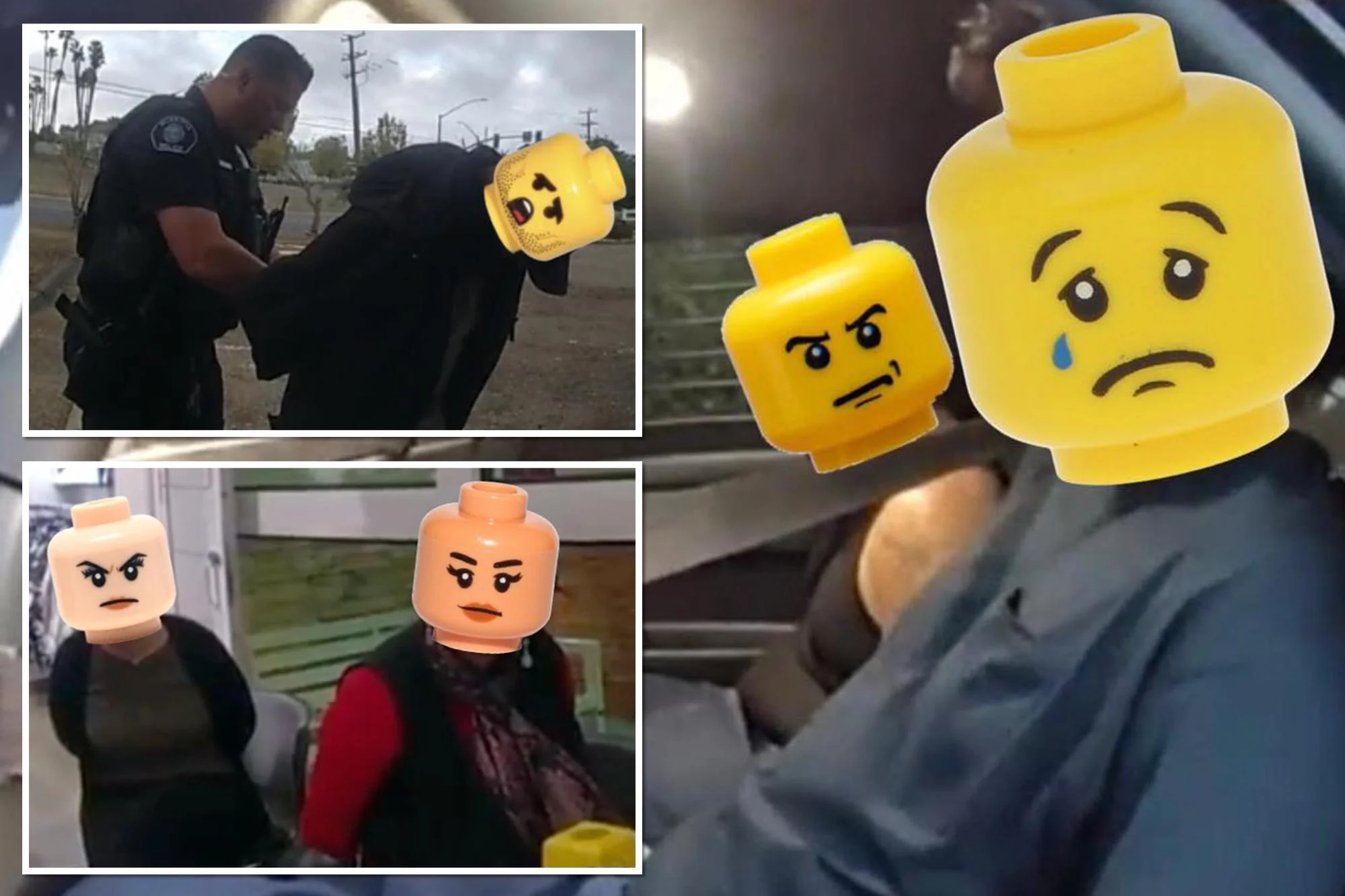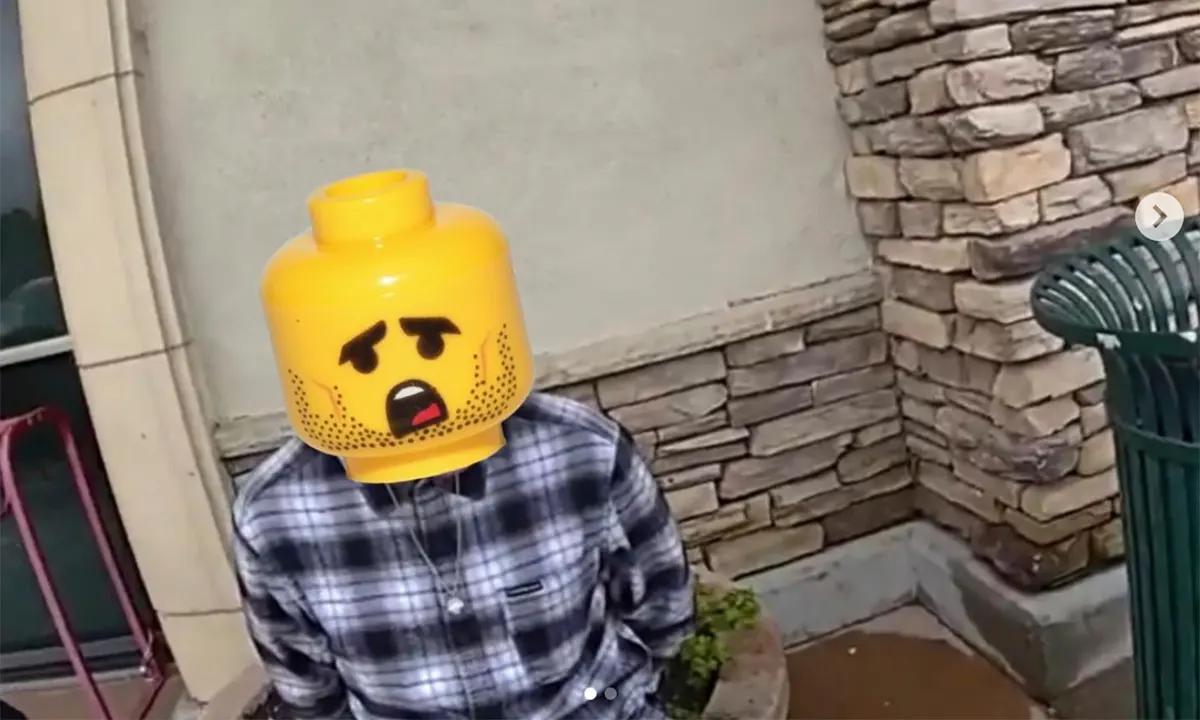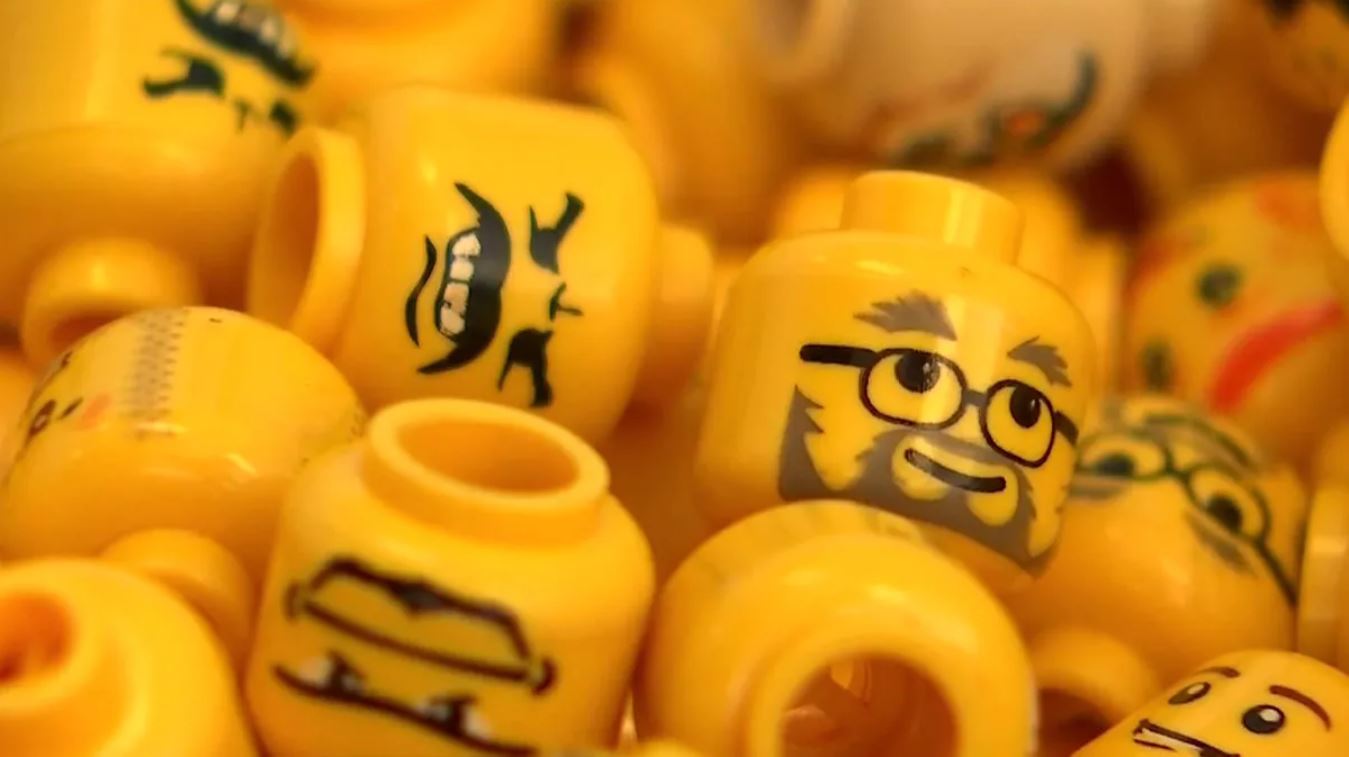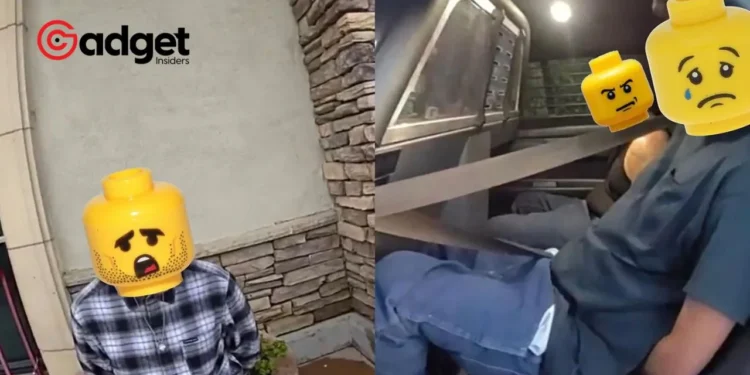In a peculiar turn of events, the Murrieta Police Department in Southern California found itself at the center of an unexpected controversy involving one of the world’s most beloved toy manufacturers, Lego. The dispute arose after the department creatively utilized Lego heads to obscure the faces of suspects in their social media posts, a move that sparked both amusement and legal scrutiny.
This inventive approach aimed to navigate new state laws with a touch of levity, but not without raising eyebrows and drawing a firm request from Lego to cease the use of their intellectual property in such a manner.
A Creative Solution to a Legal Conundrum
The roots of this unusual story trace back to early 2023 when the Murrieta Police Department began covering suspects’ faces with Lego heads and emojis in their social media posts. This method was devised as a response to a California law that came into effect on January 1, limiting law enforcement’s ability to share mugshots on social platforms.
The law mandates the removal of booking photos within 14 days under most circumstances, aiming to protect individuals’ rights and reputations. The Murrieta Police Department’s approach sought to honor the community’s desire for transparency while adhering to legal requirements, ensuring that even suspects’ rights are respected, as stated in their March 18 Instagram post.

The Ripple Effect of Mugshot Policies
The controversy surrounding the use of mugshots is not limited to Murrieta but is part of a broader debate across the United States. Law enforcement agencies have traditionally used social media to share mugshots for community engagement and public safety purposes.
However, this practice has increasingly come under scrutiny due to its potential to prejudice public perception and impede individuals’ future opportunities. California’s new legislation represents a shift towards more privacy-conscious policing, acknowledging the long-lasting impact of online mugshots.

Lego’s Intervention: A Call for Respect
The viral spread of Murrieta Police Department’s Lego-altered photos caught the attention of the toy giant, leading to a direct request to halt the use of their characters in this context. Lego’s concern underscores the complex interplay between copyright, brand integrity, and public service messaging.
In response, the department expressed understanding and compliance, emphasizing their intent to find alternative methods to maintain engagement with their audience while respecting legal and ethical boundaries.
Lego tells California police: stop putting our heads on your mugshots https://t.co/fiN5ADvKTt
— The Guardian (@guardian) March 27, 2024
The Community’s Perspective and the Future of Digital Engagement
The initiative has sparked a mix of reactions, with some applauding the creative attempt to balance transparency and privacy, while others question the allocation of resources. Assemblymember Corey Jackson, the primary sponsor of the law, pointed out the need for a thoughtful examination of how law enforcement engages with the community it serves.
The evolving landscape of digital communication presents new challenges and opportunities for public agencies to connect with residents in meaningful and respectful ways.

During a time when law enforcement agencies all around the state of California and beyond are attempting to navigate the difficult balance between public involvement and privacy rights, the experience of the Murrieta Police Department provides an exceptionally interesting case study.
In the continuous conversation between Lego and the department, the following bigger questions that our digital society is currently experiencing are brought to light: Is it possible to safeguard the rights of individuals in this day and age of social media?
And how can public institutions adapt to these changes while maintaining trust and ensuring safety? As this story unfolds, it offers a unique glimpse into the evolving dynamics of law, technology, and community relations in the modern world.










